Chia seeds have gained immense popularity in recent years, often labeled as a superfood due to their impressive nutritional profile. This article delves into the benefits and potential side effects of chia seeds, enabling you to make informed dietary choices.
Chia seeds are tiny black or white seeds derived from the Salvia hispanica plant, native to Mexico and Guatemala. Known for their nutritional density and versatility, these seeds can be easily incorporated into various dishes, making them a staple for health enthusiasts.
Chia seeds are a powerhouse of essential nutrients, including:
- Omega-3 Fatty Acids – Vital for heart and brain health.
- Dietary Fiber – Supports digestive health and promotes satiety.
- Protein – Aids in muscle repair and growth.
- Vitamins and Minerals – Including calcium, magnesium, and phosphorus.
Incorporating chia seeds into your diet can offer numerous health benefits:
Yes, chia seeds can help lower cholesterol levels and reduce the risk of heart disease due to their high omega-3 content, which promotes healthy blood pressure and overall cardiovascular health.
Absolutely! The high fiber content in chia seeds can enhance feelings of fullness, making it easier to manage weight by reducing overall calorie intake.
While chia seeds are generally safe for most individuals, there are potential side effects to consider:
Some people may experience bloating, gas, or diarrhea if they consume chia seeds in excessive amounts, especially without adequate hydration.
Though rare, some individuals may have allergic reactions to chia seeds, which can manifest as itching, hives, or even difficulty breathing.
Chia seeds are incredibly versatile and can enhance both the nutrition and texture of various dishes:
- Chia Seed Puddings – Soak chia seeds in milk or plant-based alternatives for a creamy treat.
- Smoothies – Add chia seeds to smoothies for a nutritional boost and pleasant crunch.
- Baked Goods – Incorporate chia seeds into muffins or bread for added fiber and nutrients.
Certain individuals may need to limit or avoid chia seeds:
Not necessarily. Individuals with swallowing difficulties should be cautious, as chia seeds can absorb water and expand, posing a choking hazard.
Those on anticoagulant medications should consult a healthcare provider before adding chia seeds to their diet due to their potential blood-thinning effects.
To maintain the freshness and longevity of chia seeds, proper storage is essential:
Keep chia seeds in an airtight container in a cool, dry place to prevent spoilage.
For extended shelf life, consider refrigerating chia seeds, especially if purchased in bulk or if you live in a warm climate.
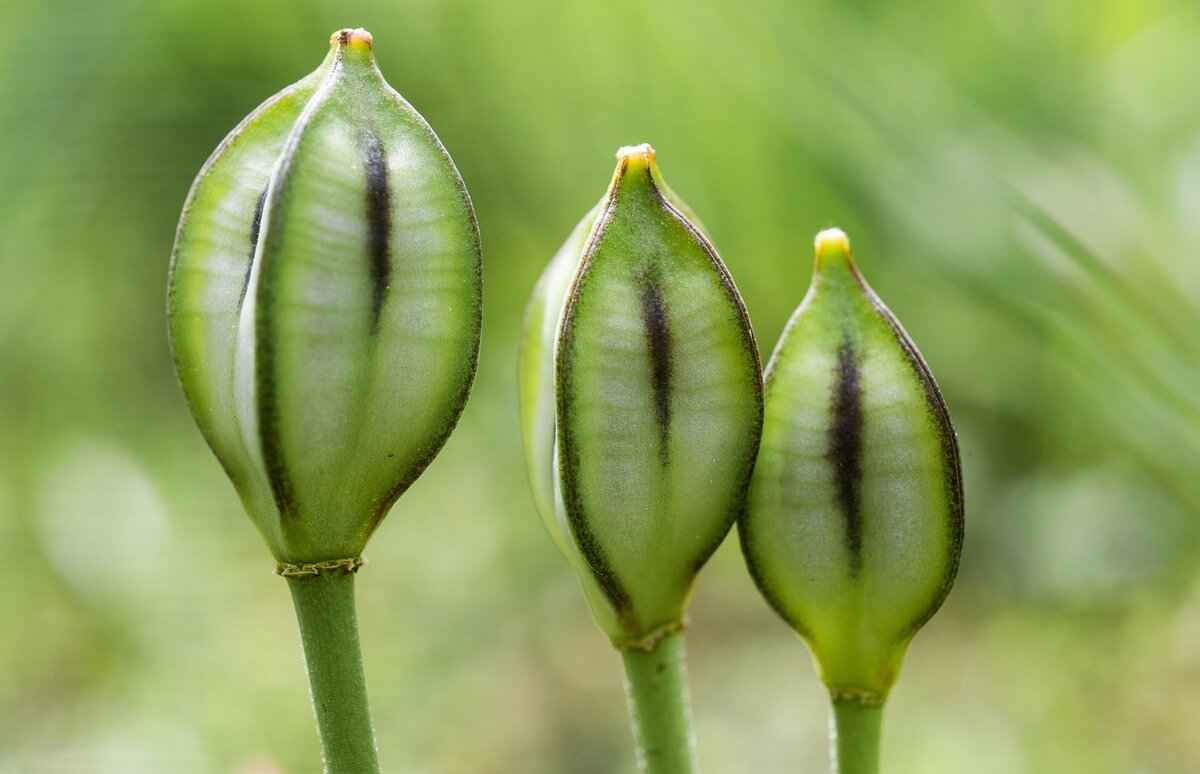
What Are Chia Seeds?
Chia seeds, derived from the Salvia hispanica plant, are tiny seeds that come in both black and white varieties. These seeds have gained immense popularity in recent years, primarily due to their remarkable nutritional density and versatility in culinary applications. Known as a superfood, chia seeds are packed with essential nutrients and can easily be incorporated into a variety of dishes, making them a favorite among health enthusiasts.
Chia seeds are incredibly rich in omega-3 fatty acids, which are vital for maintaining heart health and supporting brain function. Furthermore, they contain an impressive amount of dietary fiber, which aids in digestion and promotes a feeling of fullness, making them an excellent addition for those looking to manage their weight. In addition to fiber and omega-3s, chia seeds are also a great source of protein, vitamins, and minerals, including calcium, magnesium, and phosphorus.
When considering how to integrate chia seeds into your diet, their versatility shines through. They can be added to smoothies, salads, and baked goods, or used to create delicious puddings. The unique ability of chia seeds to absorb liquid and expand makes them an ideal ingredient for thickening recipes or adding texture to dishes. For instance, when soaked in liquid, chia seeds form a gel-like consistency, making them perfect for chia puddings. This method not only enhances the nutritional profile of your meal but also provides a delightful texture that many enjoy.
In addition to their culinary uses, chia seeds are known for their health benefits. Regular consumption of chia seeds may help improve heart health by lowering cholesterol levels and reducing the risk of heart disease. Their high fiber content supports digestive health, while also regulating blood sugar levels, making them a smart choice for those managing diabetes.
However, it is essential to be aware of potential side effects when consuming chia seeds. While they are generally safe for most individuals, excessive intake can lead to digestive issues such as bloating or diarrhea, particularly if not consumed with adequate water. Additionally, people with specific health conditions, such as those on blood thinners, should consult with a healthcare provider before incorporating chia seeds into their diet due to their natural blood-thinning properties.
In summary, chia seeds are a nutrient-dense food that can enhance your diet in numerous ways. From their rich supply of omega-3 fatty acids to their high fiber content, they offer a wide array of health benefits. Whether you choose to sprinkle them on your morning oatmeal, blend them into smoothies, or create a tasty chia pudding, these tiny seeds can play a significant role in supporting your overall health.

What Nutrients Are Found in Chia Seeds?
Chia seeds have gained popularity as a superfood due to their impressive nutritional profile. These tiny seeds, derived from the Salvia hispanica plant, are not only versatile in culinary applications but also rich in essential nutrients. Understanding what makes chia seeds a powerful addition to your diet can help you make informed dietary choices.
Chia seeds are packed with a variety of essential nutrients that contribute to overall health. The most notable components include:
- Omega-3 Fatty Acids
- Dietary Fiber
- Protein
- Vitamins and Minerals
Chia seeds are one of the richest plant-based sources of omega-3 fatty acids, particularly alpha-linolenic acid (ALA). These healthy fats are crucial for maintaining heart health and supporting brain function. Consuming omega-3s can help reduce inflammation and lower the risk of chronic diseases.
One of the standout features of chia seeds is their high fiber content. Just two tablespoons of chia seeds provide about 10 grams of fiber, which is approximately 40% of the recommended daily intake for adults. This fiber promotes digestive health by aiding in regular bowel movements and can also help manage weight by enhancing feelings of fullness.
Chia seeds are a complete protein source, containing all nine essential amino acids. This makes them an excellent option for vegetarians and vegans looking to increase their protein intake. With about 4 grams of protein per two tablespoons, they can help support muscle repair and growth.
In addition to omega-3 fatty acids, fiber, and protein, chia seeds are rich in various vitamins and minerals. They contain significant amounts of:
- Calcium – important for bone health
- Magnesium – supports muscle and nerve function
- Phosphorus – essential for energy production
- Zinc – plays a role in immune function
This combination of nutrients makes chia seeds a powerful addition to any diet, contributing to overall wellness and vitality.
Chia seeds are also a source of antioxidants, which help combat oxidative stress in the body. Antioxidants can protect cells from damage caused by free radicals, potentially reducing the risk of chronic diseases and promoting healthy aging.
When soaked in liquid, chia seeds can absorb up to 12 times their weight in water, forming a gel-like consistency. This property not only aids in hydration but also helps to slow down the absorption of carbohydrates, leading to better blood sugar control.
In conclusion, the nutrient profile of chia seeds makes them a valuable addition to a balanced diet. Their rich content of omega-3 fatty acids, fiber, protein, vitamins, and minerals can support various aspects of health, from heart function to digestive wellness. Incorporating chia seeds into your meals can be a simple yet effective way to enhance your nutritional intake.
Omega-3 Fatty Acids
When it comes to nutritional benefits, chia seeds stand out as a powerhouse of essential nutrients. One of the most significant components found in these tiny seeds is , which are crucial for maintaining optimal health. These healthy fats play a vital role in supporting both heart health and brain function. In fact, chia seeds are considered one of the richest plant-based sources of omega-3s available, making them an excellent addition to any diet.
Omega-3 fatty acids are a type of polyunsaturated fat that are essential for the body, meaning we cannot produce them on our own and must obtain them through our diet. These fats are known for their numerous health benefits:
- Heart Health: Omega-3s help lower triglyceride levels, reduce blood pressure, and decrease the risk of heart disease.
- Brain Function: These fatty acids are critical for brain health, supporting cognitive function and reducing the risk of neurodegenerative diseases.
- Inflammation Reduction: Omega-3s have anti-inflammatory properties that can help alleviate symptoms of conditions like arthritis.
While fish, particularly fatty fish like salmon, are well-known sources of omega-3s, chia seeds offer a plant-based alternative that is perfect for vegetarians and vegans. A single ounce of chia seeds contains about 5 grams of omega-3 fatty acids, primarily in the form of alpha-linolenic acid (ALA). This makes them an excellent choice for those looking to boost their omega-3 intake without consuming animal products.
Integrating chia seeds into your meals is easy and can enhance both nutrition and flavor. Here are some practical ways to include them:
- Add to Smoothies: Blend chia seeds into your favorite smoothies for an added nutrient boost.
- Make Chia Pudding: Soak chia seeds in almond milk or coconut milk overnight to create a delicious pudding.
- Sprinkle on Salads: Add chia seeds to salads for a crunchy texture and additional health benefits.
While chia seeds are generally safe for consumption, it is important to be aware of potential side effects, especially when consumed in large amounts:
- Digestive Issues: Due to their high fiber content, excessive intake can lead to bloating or discomfort.
- Allergic Reactions: Though rare, some individuals may experience allergic reactions, necessitating caution.
Incorporating chia seeds into your diet can provide a wealth of health benefits, particularly due to their rich omega-3 content. By understanding their importance and how to use them effectively, you can enhance your overall health and well-being.
High Fiber Content
is one of the standout features of chia seeds, making them an essential addition to a balanced diet. These tiny seeds, derived from the Salvia hispanica plant, pack a powerful nutritional punch, particularly in terms of dietary fiber. In this section, we will explore how chia seeds contribute to digestive health and weight management, along with practical ways to incorporate them into your daily meals.
Chia seeds are composed of approximately 34% fiber, which is significantly higher than many other seeds and grains. This high fiber content plays a crucial role in promoting digestive health. When consumed, chia seeds absorb water and expand, forming a gel-like consistency. This gel not only aids in digestion but also helps regulate bowel movements, making it easier for the body to eliminate waste. Additionally, the soluble fiber found in chia seeds can help to feed beneficial gut bacteria, enhancing gut microbiome health.
Moreover, chia seeds can be particularly beneficial for those looking to manage their weight. The fiber content in chia seeds promotes feelings of fullness, which can help reduce overall calorie intake. When chia seeds are consumed, they swell in the stomach, creating a sense of satiety that can prevent overeating. This characteristic is especially useful for individuals aiming to lose weight or maintain a healthy weight.
- Enhanced Satiety: The gel-like texture of chia seeds can increase fullness, making you less likely to snack between meals.
- Blood Sugar Regulation: The fiber in chia seeds slows down the absorption of sugar in the bloodstream, helping to prevent spikes in blood sugar levels.
- Heart Health: A high-fiber diet is associated with lower cholesterol levels, which can reduce the risk of heart disease.
Incorporating chia seeds into your diet can be simple and enjoyable. Here are some practical tips:
- Breakfast Boost: Add chia seeds to your morning smoothie or oatmeal for an extra fiber boost.
- Baking Ingredient: Mix chia seeds into baked goods like muffins or bread to enhance their nutritional profile.
- Chia Pudding: Create a delicious chia pudding by soaking the seeds in your choice of milk or yogurt overnight. This can serve as a nutritious breakfast or snack.
While chia seeds are generally safe for most individuals, it’s essential to consume them in moderation. For those who are not accustomed to high fiber intake, starting with smaller amounts can help prevent digestive discomfort such as bloating or gas. Always ensure that you drink plenty of water when consuming chia seeds to aid in their digestion and prevent any potential digestive issues.
In conclusion, the high fiber content of chia seeds not only supports digestive health but also plays a significant role in weight management by enhancing feelings of fullness. By incorporating these nutrient-dense seeds into your diet, you can enjoy the numerous health benefits they offer while adding variety and texture to your meals.
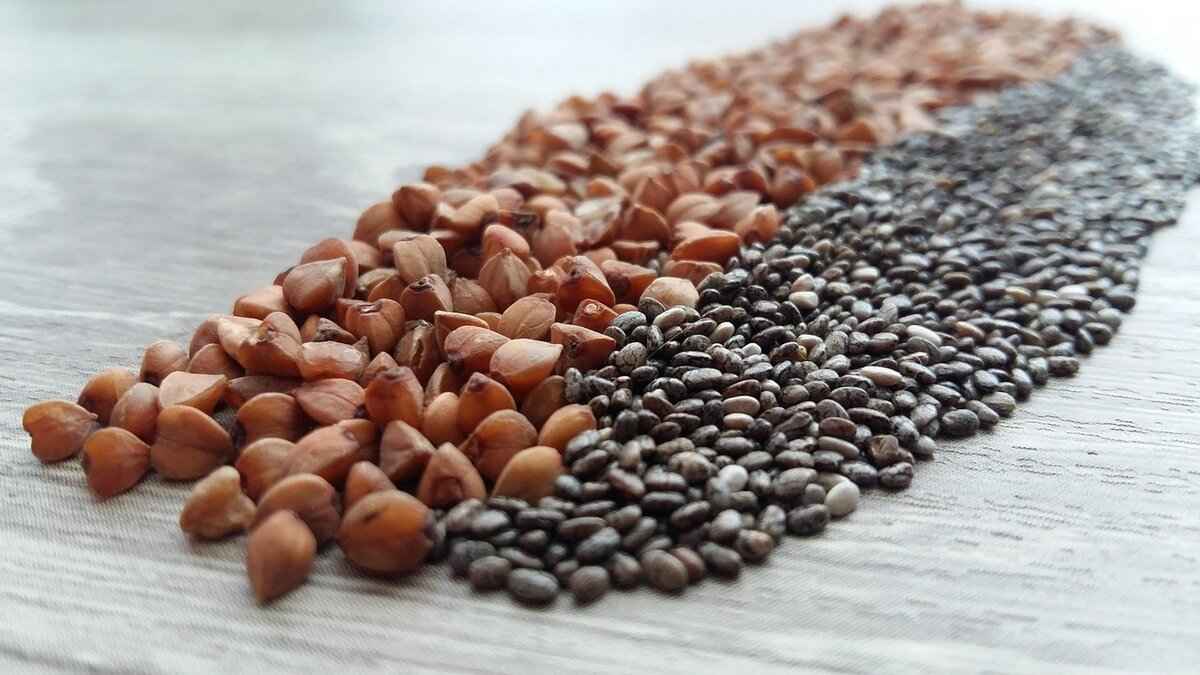
What Are the Health Benefits of Chia Seeds?
Chia seeds have gained immense popularity as a superfood due to their rich nutritional profile and numerous health benefits. These tiny seeds are not only versatile in culinary applications but also provide a wealth of advantages for overall health. In this section, we will delve deeper into the health benefits of chia seeds, highlighting their impact on heart health, digestive wellness, and blood sugar regulation.
One of the most significant benefits of chia seeds is their ability to promote heart health. Rich in omega-3 fatty acids, particularly alpha-linolenic acid (ALA), chia seeds can help reduce inflammation and lower cholesterol levels. Studies have shown that regular consumption of omega-3s can lead to a decreased risk of heart disease. Furthermore, chia seeds can help regulate blood pressure, providing an additional layer of protection for your cardiovascular system.
Chia seeds are an excellent source of dietary fiber, which is essential for maintaining a healthy digestive system. The high fiber content can help promote regular bowel movements and prevent constipation. When chia seeds absorb water, they expand and form a gel-like substance, which can aid in the smooth passage of food through the digestive tract. This property not only enhances digestion but also helps you feel full longer, making them a great addition to weight management strategies.
Another remarkable benefit of chia seeds is their potential to stabilize blood sugar levels. The soluble fiber in chia seeds can slow down the absorption of sugar in the bloodstream, preventing spikes and crashes in blood sugar levels. This is particularly beneficial for individuals with diabetes or those at risk of developing the condition. By incorporating chia seeds into meals, you can promote better blood sugar control and overall metabolic health.
Integrating chia seeds into your diet is simple and can enhance the nutritional value of your meals. Here are some practical suggestions:
- Chia Seed Pudding: Mix chia seeds with milk or a dairy-free alternative and let them soak overnight. Add fruits and nuts for a delicious breakfast or snack.
- Smoothies: Toss a tablespoon of chia seeds into your morning smoothie for an added nutrient boost.
- Baked Goods: Incorporate chia seeds into muffins, bread, or cookies for added texture and nutrition.
While chia seeds are generally safe for most individuals, it’s essential to consume them in moderation. Some people may experience digestive discomfort if they consume large amounts without adequate hydration. Additionally, those with specific health conditions or allergies should consult with a healthcare provider before adding chia seeds to their diet.
In summary, chia seeds offer a myriad of health benefits, from enhancing heart health and digestion to regulating blood sugar levels. By incorporating these tiny seeds into your daily routine, you can take significant steps towards improving your overall health and well-being.
Heart Health
When it comes to maintaining a healthy heart, chia seeds have gained significant attention for their impressive nutritional profile. These tiny seeds, rich in omega-3 fatty acids, are not only a source of essential nutrients but also play a pivotal role in promoting cardiovascular health. This section will delve deeper into how chia seeds can impact heart health and what makes them a valuable addition to your diet.
Chia seeds are particularly noted for their high content of alpha-linolenic acid (ALA), a type of omega-3 fatty acid. Research suggests that ALA can help lower LDL cholesterol (often referred to as “bad” cholesterol) levels in the blood. By reducing LDL cholesterol, chia seeds can contribute to a lower risk of heart disease.
In addition to lowering cholesterol, chia seeds may also help in managing blood pressure. The seeds are rich in fiber, which is known to improve overall heart health by aiding in weight management and promoting healthy blood vessel function. A study indicated that incorporating chia seeds into the diet may lead to significant reductions in both systolic and diastolic blood pressure.
Chia seeds are not just about omega-3s. They also contain a variety of nutrients that support cardiovascular health:
- Fiber: Helps lower cholesterol and improves digestion.
- Protein: Essential for muscle repair and overall health.
- Antioxidants: Protect the heart by reducing oxidative stress.
Incorporating chia seeds into your meals is easy and versatile. Here are some practical ways:
- Chia Seed Puddings: Mix chia seeds with almond milk and let them soak overnight for a nutritious breakfast.
- Smoothies: Add chia seeds to your favorite smoothie for an extra boost of omega-3s.
- Baking: Include chia seeds in your baked goods for added texture and health benefits.
While chia seeds are generally safe for most people, it’s important to consume them in moderation. Overconsumption can lead to digestive issues due to their high fiber content. Always ensure you drink plenty of water when consuming chia seeds to help with digestion.
Individuals on blood-thinning medications or those with specific health conditions should consult a healthcare provider before adding chia seeds to their diet. This is particularly important due to the seeds’ potential blood-thinning effects.
In summary, chia seeds offer a multitude of benefits for heart health, primarily through their high omega-3 content and ability to promote healthy cholesterol and blood pressure levels. By incorporating these tiny powerhouses into your diet, you can take proactive steps towards maintaining a healthy heart.
Weight Management
When it comes to weight management, understanding the role of dietary choices is crucial. Among the many options available, chia seeds have gained popularity as a superfood that can significantly contribute to weight loss efforts. This tiny seed, derived from the Salvia hispanica plant, is not only packed with nutrients but also offers remarkable benefits for those looking to manage their weight effectively.
The high fiber content in chia seeds is one of the primary reasons they are effective in promoting weight loss. Each serving of chia seeds contains a substantial amount of dietary fiber, which plays a vital role in enhancing satiety and reducing hunger. When chia seeds are consumed, they absorb water and expand in the stomach, creating a gel-like substance that can help you feel full for a longer period. This sensation of fullness can lead to a decrease in overall calorie intake, making it easier to adhere to a weight loss plan.
- Low in Calories: Chia seeds are relatively low in calories while being high in nutrients, making them an excellent addition to meals and snacks.
- Rich in Nutrients: They provide essential nutrients such as omega-3 fatty acids, protein, and various vitamins and minerals, which are crucial for overall health.
- Versatile Ingredient: Chia seeds can be easily incorporated into various dishes, from smoothies to baked goods, allowing for creative and healthy snacking options.
Incorporating chia seeds into your diet can be simple and enjoyable. Here are some practical ways to use them:
1. Add them to smoothies for a nutrient boost.2. Mix them into yogurt or oatmeal for added texture.3. Create chia seed puddings by soaking them in milk or a plant-based alternative.4. Include them in baked goods like muffins or bread for extra fiber.
While chia seeds are beneficial for weight management, it is essential to consume them in moderation. Overconsumption can lead to digestive issues such as bloating or gas, particularly if not adequately hydrated. It’s recommended to start with a small amount and gradually increase your intake as your body adjusts.
In summary, the high fiber content in chia seeds can significantly aid in weight loss by promoting satiety, helping you feel full longer, and reducing overall calorie intake. By incorporating chia seeds into your daily diet, you can enjoy their numerous health benefits while supporting your weight management goals.

Are There Any Side Effects of Chia Seeds?
Chia seeds have gained immense popularity as a superfood, celebrated for their numerous health benefits. However, it is essential to recognize that while these tiny seeds are generally safe for most individuals, they can lead to some side effects, particularly when consumed in excessive amounts. Understanding these potential drawbacks can help you make informed dietary choices.
Chia seeds are rich in fiber, omega-3 fatty acids, and various essential nutrients. Yet, their consumption should be approached with caution. Here are some of the side effects associated with chia seeds:
- Digestive Issues: Due to their high fiber content, consuming too many chia seeds can lead to digestive discomfort. Some individuals may experience bloating, gas, or diarrhea, especially if they do not hydrate the seeds adequately before consumption. Chia seeds can absorb up to 12 times their weight in water, which can cause issues if not prepared properly.
- Allergic Reactions: Although rare, some people may be allergic to chia seeds. Symptoms can include itching, hives, or even severe reactions such as difficulty breathing. If you suspect an allergy, it is crucial to seek medical advice.
- Choking Hazard: For individuals with swallowing difficulties, chia seeds can pose a choking risk. When they absorb liquid, they expand significantly, which can be dangerous for those who struggle with swallowing.
- Blood Thinning Effects: Chia seeds have natural blood-thinning properties due to their high omega-3 fatty acid content. Individuals on anticoagulant medications should consult a healthcare provider before incorporating chia seeds into their diet to avoid potential complications.
To enjoy the benefits of chia seeds while minimizing potential side effects, consider the following tips:
- Start Slowly: If you are new to chia seeds, begin with a small amount and gradually increase your intake. This approach allows your digestive system to adjust.
- Hydrate Properly: Always soak chia seeds in water or another liquid before consuming them. This not only helps in digestion but also enhances their nutritional absorption.
- Consult a Healthcare Provider: If you have underlying health conditions or are taking medications, it’s wise to discuss your chia seed intake with a healthcare professional.
While chia seeds can be a healthy addition to many diets, certain individuals may need to limit or avoid them:
- People with Gastrointestinal Disorders: Those with conditions like irritable bowel syndrome (IBS) or diverticulitis may find that chia seeds exacerbate their symptoms.
- Pregnant and Nursing Women: While chia seeds are generally safe, pregnant and nursing women should consult their healthcare provider before adding them to their diet to ensure they are suitable for their specific circumstances.
In summary, chia seeds are a nutritious addition to many diets, but like any food, they should be consumed with care. Being aware of their potential side effects and how to mitigate them can help you enjoy all the health benefits these tiny seeds have to offer.
Digestive Issues
When it comes to incorporating chia seeds into your diet, many people are often drawn to their numerous health benefits. However, it is equally important to be aware of potential side effects, particularly related to digestive health.
Chia seeds are renowned for their high fiber content, which can be beneficial for digestive health. Nevertheless, consuming them in large quantities, especially without adequate hydration, can lead to some uncomfortable digestive issues.
The primary reason some individuals experience bloating, gas, or even diarrhea after consuming chia seeds is their remarkable ability to absorb water. When chia seeds are ingested, they can expand up to 10-12 times their original size. This expansion can create a gel-like substance that aids digestion, but if not enough liquid is consumed, it can lead to gastrointestinal discomfort.
While chia seeds are a healthy addition to your diet, moderation is key. The recommended daily intake is about 1 to 2 tablespoons. Exceeding this amount, particularly for those unaccustomed to high fiber diets, can trigger digestive issues. It is advisable to gradually increase your intake to allow your digestive system to adjust.
To mitigate the risk of digestive discomfort, it is crucial to stay hydrated when consuming chia seeds. Drinking plenty of water can help the seeds expand properly and move through the digestive tract smoothly. A good rule of thumb is to drink at least 8 ounces of water for every tablespoon of chia seeds consumed.
- Bloating: A feeling of fullness or swelling in the abdomen.
- Gas: Increased flatulence or discomfort due to trapped air.
- Diarrhea: Frequent, loose, or watery stools that can lead to dehydration.
Individuals with pre-existing digestive disorders, such as irritable bowel syndrome (IBS) or inflammatory bowel disease (IBD), may be more susceptible to experiencing adverse effects from chia seeds. It is advisable for these individuals to consult with a healthcare professional before adding chia seeds to their diet.
To enjoy the benefits of chia seeds while minimizing the risk of digestive discomfort, consider the following tips:
- Soak Chia Seeds: Soaking chia seeds in water or a liquid for at least 30 minutes before consumption can help them expand and soften, making them easier to digest.
- Combine with Other Foods: Mixing chia seeds into smoothies, yogurt, or oatmeal can help dilute their concentration and ease their passage through the digestive system.
- Monitor Your Body’s Response: Pay attention to how your body reacts after consuming chia seeds. If you experience discomfort, consider reducing your intake or adjusting the way you consume them.
In summary, while chia seeds offer numerous health benefits, it is essential to be mindful of their potential digestive side effects. By consuming them in moderation, staying hydrated, and paying attention to your body’s signals, you can enjoy the nutritional benefits of chia seeds without discomfort.
Allergic Reactions
Chia seeds have gained immense popularity as a superfood, celebrated for their numerous health benefits. However, like any food, they can cause adverse reactions in certain individuals. One of the potential side effects that deserves attention is the possibility of to chia seeds. Though these reactions are relatively rare, they can lead to serious symptoms that one must be aware of when incorporating chia seeds into their diet.
Individuals who are allergic to chia seeds may experience a range of symptoms. These can include:
- Itching – A common symptom, itching may occur in various parts of the body.
- Hives – Raised, red welts on the skin can develop as a response to allergens.
- Difficulty Breathing – In severe cases, an allergic reaction can lead to respiratory issues, which require immediate medical attention.
- Swelling – Some individuals may notice swelling in the face, lips, or throat.
While most people can safely enjoy chia seeds, certain individuals may be more susceptible to allergies. Those with a history of food allergies, particularly to seeds or nuts, should exercise caution. Additionally, individuals with cross-reactive allergies, such as those allergic to other members of the mint family (to which chia belongs), may also be at risk.
If you suspect that you may have an allergy to chia seeds, it is crucial to consult with a healthcare professional. They may recommend:
- Allergy Testing – Skin or blood tests can help determine if you have a chia seed allergy.
- Elimination Diet – Temporarily removing chia seeds from your diet and monitoring symptoms can also provide insights.
In the event of an allergic reaction to chia seeds, it is essential to act quickly:
- If symptoms are mild, such as itching or hives, over-the-counter antihistamines may help alleviate discomfort.
- For more severe symptoms, especially difficulty breathing or swelling, seek emergency medical help immediately.
For those who do not have allergies, chia seeds can be a nutritious addition to your diet. To minimize the risk of adverse reactions:
- Start Small – If you are new to chia seeds, begin with a small amount to see how your body reacts.
- Stay Informed – Be aware of any changes in your body after consuming chia seeds and consult a healthcare provider if needed.
In conclusion, while chia seeds offer a plethora of health benefits, they may not be suitable for everyone. Understanding the potential for allergic reactions and recognizing the symptoms can help ensure a safe and enjoyable experience with this superfood. Always consult with a healthcare professional if you have concerns about allergies or dietary changes.
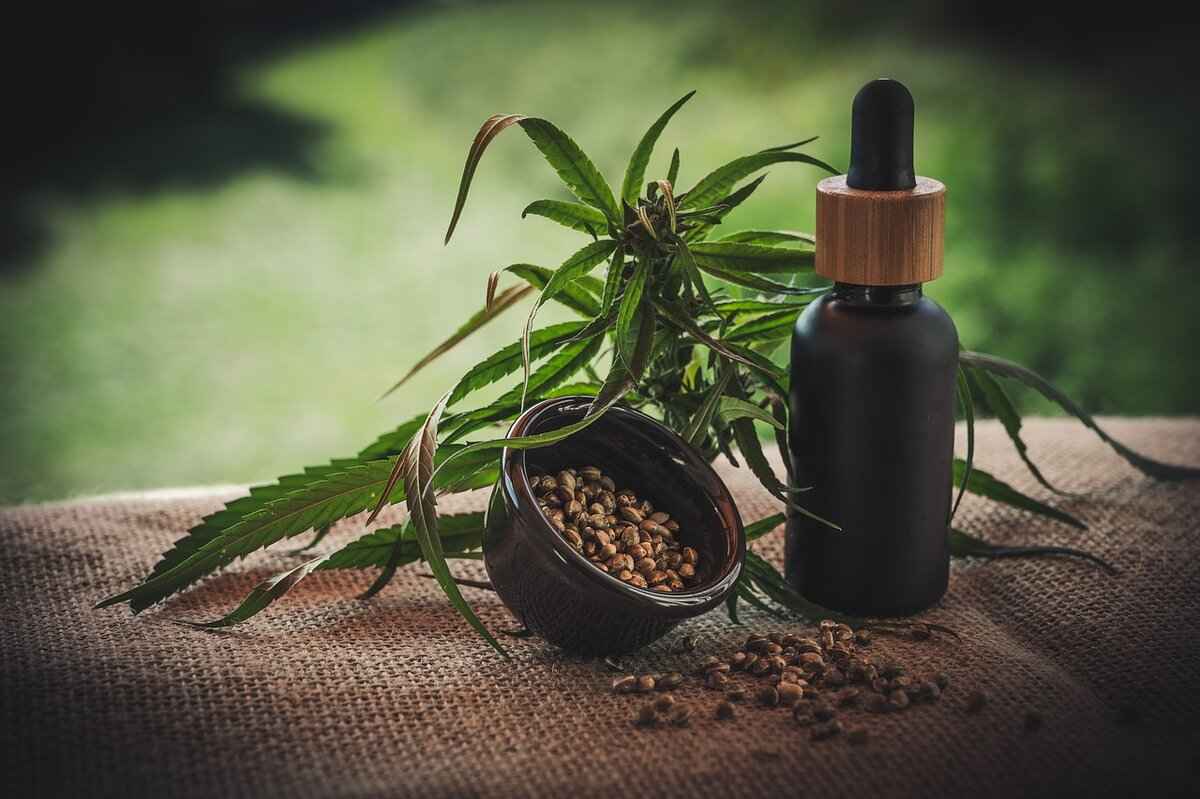
How to Incorporate Chia Seeds into Your Diet?
Incorporating chia seeds into your diet is a simple yet effective way to boost your nutrition without sacrificing flavor. These tiny seeds are not only versatile but also packed with essential nutrients that can enhance various meals and snacks. Here are some creative ways to add chia seeds to your daily routine:
One of the most popular methods of enjoying chia seeds is by making chia seed puddings. To prepare this delightful dish, simply mix chia seeds with your choice of milk—whether dairy or plant-based—and let them soak for a few hours or overnight. The seeds will absorb the liquid and create a creamy, pudding-like texture. You can enhance the flavor by adding fruits, vanilla, or cocoa powder for a delicious dessert or breakfast option.
Another excellent way to incorporate chia seeds is by adding them to your smoothies. Just a tablespoon of chia seeds can significantly increase the nutritional value of your drink. They add a pleasant crunch and can help thicken the smoothie, making it more satisfying. Combine them with your favorite fruits, greens, and a source of protein for a well-rounded meal.
Chia seeds can also be used in baking. Whether you’re making muffins, bread, or cookies, adding chia seeds enhances the nutritional profile of your baked goods. They can replace eggs in recipes by mixing one tablespoon of chia seeds with three tablespoons of water, allowing it to sit until it forms a gel-like consistency. This not only binds the ingredients but also adds fiber and omega-3 fatty acids.
Sprinkling chia seeds on salads is another easy way to enjoy their benefits. They can add a delightful crunch and a nutritional boost to any salad. Additionally, you can blend chia seeds into homemade dressings for a thicker, creamier texture. Simply mix chia seeds with olive oil, vinegar, and your favorite herbs for a healthy dressing.
For a quick and nutritious snack, consider making chia seed energy bars. Combine chia seeds with oats, nut butter, honey, and your choice of nuts or dried fruits. Press the mixture into a baking dish and refrigerate until firm. These bars are perfect for on-the-go snacking, providing a balanced source of energy.
Lastly, for a refreshing drink, try chia seed water. Simply soak a tablespoon of chia seeds in a glass of water for about 30 minutes. The seeds will swell and create a gel-like consistency. You can add lemon or lime juice for flavor and enjoy a hydrating beverage that also offers health benefits.
In conclusion, chia seeds are an incredibly versatile ingredient that can enhance the nutrition and texture of various dishes. By incorporating them into your meals in different forms—whether as puddings, smoothies, baked goods, or salads—you can enjoy their numerous health benefits while adding a delightful crunch to your diet.
Chia Seed Puddings
Chia seed puddings have become a popular and nutritious option for health-conscious individuals looking to incorporate superfoods into their diets. These delightful puddings are not only easy to prepare but also offer a myriad of health benefits. By soaking chia seeds in milk or plant-based alternatives, you create a creamy, satisfying treat that is both delicious and nutrient-dense.
Chia seed puddings are an excellent choice for breakfast or as a snack. They are incredibly versatile and can be customized to suit your taste preferences. The soaking process transforms the tiny seeds into a gel-like consistency, making them perfect for puddings. This method not only enhances the texture but also maximizes the nutritional benefits of chia seeds.
- Rich in Omega-3 Fatty Acids: Chia seeds are one of the best plant-based sources of omega-3 fatty acids, which are essential for heart health.
- High in Fiber: Each serving of chia seed pudding is packed with fiber, promoting digestive health and aiding in weight management.
- Protein Powerhouse: Chia seeds contain a good amount of protein, making them a great addition to a balanced diet.
- Low in Calories: Chia seed puddings are relatively low in calories, making them an ideal option for those watching their weight.
Creating a chia seed pudding is simple and requires minimal ingredients. Here’s a basic recipe to get you started:
Ingredients:- 1/4 cup chia seeds- 1 cup milk (dairy or plant-based)- 1-2 tablespoons sweetener (honey, maple syrup, or agave)- 1/2 teaspoon vanilla extract (optional)- Toppings (fruits, nuts, or granola)Instructions:1. In a bowl, mix chia seeds, milk, sweetener, and vanilla extract.2. Stir well to combine and prevent clumping.3. Cover and refrigerate for at least 2 hours or overnight.4. Serve chilled with your favorite toppings.
One of the best aspects of chia seed puddings is their customizability. You can experiment with different flavors and ingredients:
- Fruits: Add fresh or frozen fruits like berries, bananas, or mango for natural sweetness.
- Spices: Incorporate spices such as cinnamon or cocoa powder for added flavor.
- Nuts and Seeds: Top with nuts or seeds for a satisfying crunch and additional nutrients.
Chia seed puddings can be stored in the refrigerator for up to five days, making them a convenient option for meal prep. Ensure that they are kept in an airtight container to maintain freshness.
Chia seed puddings are not just a trend; they are a nutritional powerhouse that can easily fit into any dietary plan. With their health benefits, ease of preparation, and endless customization options, they are a delicious way to enjoy the goodness of chia seeds. Whether you’re looking for a quick breakfast or a satisfying dessert, chia seed puddings are sure to delight your taste buds and nourish your body.
Smoothies and Baked Goods
In recent years, chia seeds have gained immense popularity as a nutritional powerhouse. When it comes to enhancing your meals, particularly in smoothies and baked goods, these tiny seeds offer a myriad of benefits that go beyond just health. Let’s explore how incorporating chia seeds can transform your favorite recipes.
Adding chia seeds to smoothies is a fantastic way to boost their nutritional value. These seeds are rich in omega-3 fatty acids, which are essential for heart health and cognitive function. Moreover, their high fiber content aids in digestion and promotes a feeling of fullness, making your smoothie not just delicious but also satisfying.
- Texture Enhancement: Chia seeds absorb liquid and swell up, creating a unique gel-like consistency that can enhance the texture of your smoothies.
- Flavor Neutrality: Their mild flavor allows them to blend seamlessly with various fruits and vegetables, ensuring that they don’t overpower the taste of your smoothie.
- Easy to Use: Simply add a tablespoon of chia seeds to your smoothie before blending for a nutritious boost.
Incorporating chia seeds into baked goods is another excellent way to enjoy their benefits. They can be used in a variety of recipes, from muffins to bread, providing both nutritional density and a delightful crunch.
- Replacing Eggs: Chia seeds can serve as an egg substitute in vegan baking. Combine one tablespoon of chia seeds with three tablespoons of water, let it sit for a few minutes, and you have a perfect binding agent.
- Adding Crunch: The seeds add a pleasant crunch to baked goods, making them more enjoyable to eat.
- Boosting Nutrients: By adding chia seeds, you increase the fiber, protein, and omega-3 content of your baked treats, making them more wholesome.
To get the most out of chia seeds, consider the following tips:
- Soak Before Use: Soaking chia seeds in water or milk before adding them to recipes can enhance their texture and digestibility.
- Experiment with Ratios: Start with a small amount and gradually increase as you become accustomed to the texture and flavor.
- Combine with Other Ingredients: Pair chia seeds with fruits, nuts, or spices to create a well-rounded flavor profile in your smoothies and baked goods.
In conclusion, whether you are blending a nutritious smoothie or baking a batch of healthy muffins, chia seeds are an excellent ingredient to enhance both the nutritional value and the overall experience of your meals. Their versatility and health benefits make them a must-have in any kitchen.
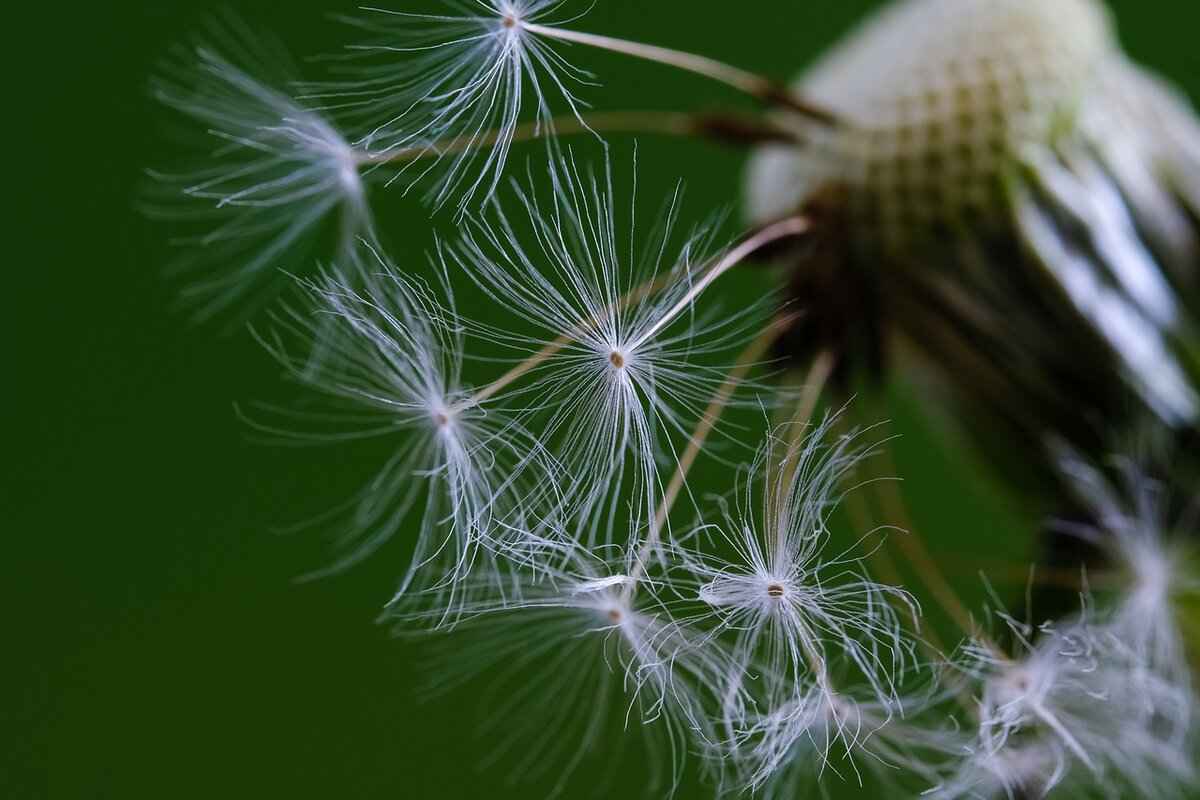
Who Should Avoid Chia Seeds?
Chia seeds are often celebrated for their numerous health benefits, but they may not be suitable for everyone. Understanding who should avoid or limit their intake is essential for making informed dietary choices. This section delves into specific groups of individuals who may need to exercise caution when consuming chia seeds.
Chia seeds have a unique property of absorbing water and expanding significantly. This characteristic can create a risk for individuals with swallowing difficulties or conditions affecting the esophagus. When chia seeds are consumed dry, they can swell in the throat, leading to a potential choking hazard. It is crucial for these individuals to consult with a healthcare professional before incorporating chia seeds into their diet.
Chia seeds contain omega-3 fatty acids, which can have blood-thinning effects. For those on anticoagulant medications, such as warfarin, adding chia seeds to their diet may require careful monitoring. Increased intake of omega-3s can enhance the effects of these medications, potentially leading to excessive bleeding. It is advisable for individuals on blood thinners to discuss their chia seed consumption with their healthcare provider.
Although rare, some people may experience allergic reactions to chia seeds. Symptoms can include itching, hives, or even difficulty breathing. If you have a history of allergies to similar seeds or plants, it is wise to approach chia seeds with caution. Performing a patch test or consulting with an allergist can help determine if chia seeds are safe for you.
Chia seeds are high in fiber, which can lead to digestive discomfort for some individuals, particularly those with existing gastrointestinal issues such as irritable bowel syndrome (IBS) or inflammatory bowel disease (IBD). Consuming large quantities of chia seeds without adequate hydration can exacerbate symptoms like bloating, gas, and diarrhea. For those with sensitive digestive systems, it is recommended to start with small amounts and increase gradually, ensuring proper hydration.
While chia seeds can be a nutritious addition to a balanced diet, pregnant and breastfeeding women should consult with their healthcare provider before adding them in large amounts. The high fiber content may lead to digestive issues if not consumed with sufficient fluids. Additionally, the effects of chia seeds on fetal development or lactation are not extensively studied, warranting caution.
Chia seeds have been known to help lower blood pressure due to their high omega-3 content. While this is beneficial for many, individuals with existing hypotension (low blood pressure) should be cautious. Consuming chia seeds could further lower blood pressure, leading to symptoms such as dizziness or fainting. Monitoring blood pressure levels and consulting with a healthcare provider is advisable for those with this condition.
In summary, while chia seeds offer numerous health benefits, certain individuals should limit or avoid their consumption. Those with swallowing difficulties, people on blood thinners, individuals with allergies, and those with gastrointestinal issues should approach chia seeds with caution. Pregnant and breastfeeding women, as well as individuals with hypotension, should also consult healthcare professionals before including chia seeds in their diet. Making informed dietary choices is crucial for maintaining optimal health.
Individuals with Swallowing Difficulties
Chia seeds, renowned for their nutritional benefits, can be a versatile addition to many diets. However, it’s essential to recognize that they may not be suitable for everyone. One significant concern is their potential choking hazard for individuals with swallowing difficulties or esophageal conditions.
Chia seeds have a unique property: they can absorb up to 12 times their weight in water. This ability allows them to expand significantly when soaked, forming a gel-like consistency. While this characteristic is beneficial for many culinary applications, it also raises concerns for certain populations.
- People with Dysphagia: This condition, characterized by difficulty swallowing, can make consuming foods that expand in the throat potentially dangerous.
- Those with Esophageal Disorders: Individuals suffering from conditions such as esophageal strictures or achalasia may experience challenges when swallowing foods that can swell.
- Older Adults: Age-related changes in swallowing function can increase the risk of choking on foods that are not easily chewed or swallowed.
Recognizing the symptoms of choking is crucial for individuals at risk. Common signs include:
- Coughing or gagging: These are the body’s natural responses to clear the airway.
- Difficulty breathing: This may manifest as wheezing or an inability to speak.
- Feeling of tightness in the throat: This sensation can indicate that food is lodged in the esophagus.
For those who wish to include chia seeds in their diet but have swallowing difficulties, here are some safe consumption practices:
- Soak Before Eating: Always soak chia seeds in water or another liquid for at least 30 minutes before consumption. This process helps them expand and form a gel, making them easier to swallow.
- Incorporate into Smoothies: Blending chia seeds into smoothies can help mask their texture and make them easier to consume.
- Consult a Healthcare Professional: Before adding chia seeds to your diet, especially for those with known swallowing issues, it’s advisable to consult a healthcare provider.
If you or someone you know has difficulty with chia seeds, consider these alternatives that offer similar nutritional benefits without the choking risk:
- Flaxseeds: Ground flaxseeds are a great source of omega-3 fatty acids and can be easier to digest.
- Hemp Seeds: These seeds provide protein and healthy fats and can be sprinkled on various dishes without the risk of swelling.
In summary, while chia seeds can be a nutritious addition to many diets, individuals with swallowing difficulties or esophageal conditions should exercise caution. By understanding the risks and implementing safe consumption practices, individuals can enjoy the health benefits of chia seeds while minimizing potential hazards.
People on Blood Thinners
Chia seeds have gained popularity for their numerous health benefits, but it’s essential to understand their implications, especially for individuals on blood-thinning medications. This section delves into the relationship between chia seeds and anticoagulant drugs, ensuring that you have the necessary information to make informed dietary choices.
Blood thinners are medications that help prevent blood clots, which can lead to serious health issues such as heart attacks and strokes. Common anticoagulants include warfarin, dabigatran, and rivaroxaban. While these medications are crucial for those at risk of clotting, they require careful dietary management to avoid complications.
Chia seeds are rich in omega-3 fatty acids, which are known for their anti-inflammatory properties and ability to promote heart health. However, these same properties can also lead to blood-thinning effects. When consumed in moderation, chia seeds can be a beneficial addition to a balanced diet. Yet, for those already taking anticoagulant medications, the effects can be compounded, leading to increased bleeding risks.
Before incorporating chia seeds into your diet, it is crucial for individuals on blood thinners to consult with a healthcare provider. This consultation can help assess your overall health, dietary needs, and any potential interactions between chia seeds and your medication. A healthcare professional can provide personalized advice, ensuring that you can safely enjoy the benefits of chia seeds without compromising your health.
- Moderation is Key: If you receive the green light from your healthcare provider, start with small amounts of chia seeds to monitor how your body reacts.
- Stay Hydrated: Chia seeds absorb water and can expand significantly. Make sure to consume them with adequate fluids to avoid digestive discomfort.
- Monitor Blood Levels: Regularly check your blood levels if you are on anticoagulant therapy, as dietary changes, including chia seed consumption, may affect your medication’s efficacy.
If you are advised against consuming chia seeds, there are alternative sources of omega-3 fatty acids that may be safer for individuals on blood thinners. Options include:
- Flaxseeds: These seeds are also high in omega-3s but may have a lesser impact on blood thinning.
- Walnuts: A great source of omega-3 fatty acids, walnuts can be a nutritious alternative.
- Fatty Fish: Salmon, mackerel, and sardines provide omega-3s and are generally considered safe in moderation.
Chia seeds can be a nutritious addition to many diets, but for individuals on blood thinners, caution is necessary. Always consult with a healthcare provider before making significant dietary changes, especially when it involves foods that can affect blood coagulation. By staying informed and working closely with your healthcare team, you can enjoy the benefits of chia seeds while managing your health effectively.
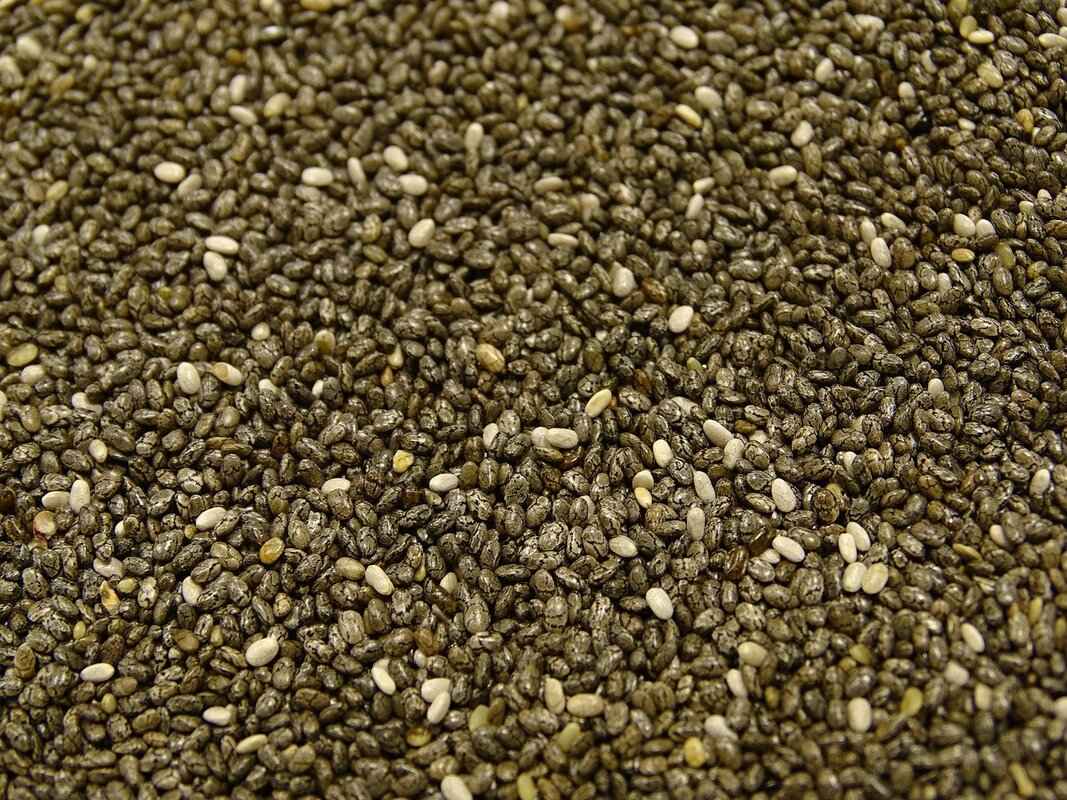
How to Store Chia Seeds Properly?
When it comes to storing chia seeds, the method you choose can significantly impact their freshness and longevity. Proper storage not only preserves their nutritional value but also ensures that you can enjoy the many benefits they offer without compromising on quality. Here’s a comprehensive guide on how to store chia seeds effectively.
Chia seeds are packed with essential nutrients, including omega-3 fatty acids, fiber, and protein. However, their high oil content makes them susceptible to rancidity if not stored correctly. Proper storage methods help maintain their flavor, texture, and nutritional benefits over time.
- Choose an Airtight Container: Storing chia seeds in an airtight container is crucial. This prevents exposure to moisture and air, both of which can lead to spoilage. Glass jars, vacuum-sealed bags, or plastic containers with tight-fitting lids are excellent options.
- Keep in a Cool, Dry Place: Chia seeds should be kept in a cool, dry location away from direct sunlight. A pantry or cupboard is ideal. Heat and light can degrade the quality of the seeds.
- Refrigeration for Extended Shelf Life: If you purchase chia seeds in bulk or live in a warm climate, consider refrigeration. Storing them in the fridge can significantly extend their shelf life, keeping them fresh for several months.
When stored properly, chia seeds can last for up to two years without losing their nutritional value. However, it’s essential to check for signs of spoilage, such as an off smell or discoloration, before consumption.
Yes, you can freeze chia seeds to extend their shelf life even further. Make sure to place them in a freezer-safe container to prevent moisture from getting in. When you’re ready to use them, simply take out the desired amount and let them thaw at room temperature.
- Avoid Buying in Bulk: Unless you consume chia seeds regularly, avoid buying large quantities that may go stale before you finish them.
- Check Expiration Dates: Always check the expiration date before purchasing chia seeds to ensure you are buying fresh seeds.
- Use Desiccants: If you’re storing chia seeds in a container for an extended period, consider adding a food-safe desiccant packet to absorb any moisture.
Before using chia seeds, always check for signs of spoilage. If you notice a rancid smell, off taste, or any visible mold, it’s best to discard the seeds. Consuming spoiled chia seeds can lead to digestive discomfort.
By following these guidelines, you can ensure that your chia seeds remain fresh and nutritious, allowing you to enjoy their numerous health benefits without any compromise. Proper storage is key to maintaining the quality of this superfood, ensuring that you can incorporate it into your diet for a long time to come.
Keep in a Cool, Dry Place
When it comes to storing chia seeds, proper techniques are essential to ensure that their nutritional benefits remain intact. Chia seeds, known for their impressive health benefits, can lose their potency if not stored correctly. One of the most effective methods for maintaining their freshness is to keep them in an airtight container placed in a cool, dry location.
Chia seeds are rich in omega-3 fatty acids, antioxidants, and fiber, making them a valuable addition to any diet. However, exposure to moisture, light, and air can lead to spoilage, diminishing their nutritional value. By ensuring that chia seeds are stored in an airtight container, you effectively block out moisture and air, which are primary culprits in the degradation of these seeds.
When selecting a container for your chia seeds, opt for glass or high-quality plastic that seals tightly. Glass jars with airtight lids are particularly effective, as they do not retain odors and are easy to clean. Avoid using containers that are not completely sealed, as even small amounts of air can lead to rancidity over time.
- Temperature: Aim to keep chia seeds at a temperature below 70°F (21°C). Higher temperatures can accelerate spoilage.
- Humidity: A dry environment is crucial. Avoid areas near stoves, dishwashers, or any place that generates moisture.
- Light Exposure: Store chia seeds in a dark cupboard or pantry. Exposure to light can degrade the quality of the seeds.
If you purchase chia seeds in bulk or live in a particularly warm climate, consider refrigerating them. This method can significantly extend their shelf life, maintaining their freshness for months. Just ensure they remain in an airtight container to prevent moisture absorption from the refrigerator.
When stored properly, chia seeds can last for up to two years without losing their nutritional properties. However, it is always a good idea to check for any off smells or changes in texture before using them, as these can indicate spoilage.
- Odor: A rancid or off smell can indicate that the seeds have gone bad.
- Texture: If the seeds feel sticky or clump together, they may have absorbed moisture and should be discarded.
- Flavor: A bitter or unusual taste is a clear sign that the chia seeds are no longer good to eat.
By following these guidelines for storing chia seeds, you can enjoy their health benefits for a longer period. Remember, proper storage is key to maintaining the quality of these tiny yet powerful seeds!
Refrigeration for Extended Shelf Life
When it comes to preserving the freshness and nutritional value of chia seeds, proper storage is crucial. One effective method to ensure their longevity is through refrigeration. This is particularly important for those who purchase chia seeds in bulk or reside in warmer climates. The following information outlines the benefits of refrigerating chia seeds and tips for optimal storage.
Chia seeds are known for their impressive shelf life, but like any natural product, they can degrade over time. By refrigerating chia seeds, you can significantly extend their shelf life and maintain their quality. Refrigeration slows down the oxidation process, which can lead to rancidity, especially in seeds that are high in healthy fats, like chia seeds.
- Prevents Rancidity: Chia seeds are rich in omega-3 fatty acids, which are prone to oxidation. Keeping them in the fridge helps to preserve these healthy fats.
- Maintains Nutritional Integrity: Refrigeration helps retain the vitamins and minerals in chia seeds, ensuring you receive their full health benefits.
- Reduces Pest Infestation: Storing chia seeds in the refrigerator can also deter pests that may be attracted to seeds stored at room temperature.
To maximize the benefits of refrigeration, follow these simple steps:
- Use an Airtight Container: Place chia seeds in a clean, airtight container to prevent moisture absorption and protect them from odors.
- Label and Date: Always label your container with the date of purchase. This will help you keep track of their freshness.
- Avoid Frequent Opening: Limit the number of times you open the container to reduce exposure to humidity and temperature fluctuations.
While refrigeration is beneficial, there are a few considerations to keep in mind:
- Condensation: Avoid placing warm chia seeds in the refrigerator, as this can create condensation inside the container, leading to spoilage.
- Freezing Option: For even longer storage, consider freezing chia seeds. However, ensure they are in a vacuum-sealed bag to prevent freezer burn.
Refrigerating chia seeds is a simple yet effective way to extend their shelf life and maintain their nutritional benefits. By following proper storage techniques, you can enjoy the health advantages of chia seeds for a longer period, making them a staple in your diet.
Frequently Asked Questions
- Can I eat chia seeds every day?
Absolutely! Chia seeds are a fantastic addition to your daily diet. Just remember to start with a small amount and gradually increase it to avoid any digestive issues.
- How do I prepare chia seeds for consumption?
You can soak them in water or milk for about 15-30 minutes to create a gel-like consistency, or simply sprinkle them on top of your meals. They’re super versatile!
- Are chia seeds safe for everyone?
Most people can enjoy chia seeds without any problems. However, if you have swallowing difficulties or are on blood thinners, it’s best to consult with a healthcare provider first.
- What is the recommended daily intake of chia seeds?
Generally, 1-2 tablespoons per day is a good amount to reap the benefits without overdoing it. Just listen to your body!
- Can chia seeds help with weight loss?
Yes! Their high fiber content helps you feel full longer, which can aid in reducing overall calorie intake. Think of them as your little satiety superheroes!














